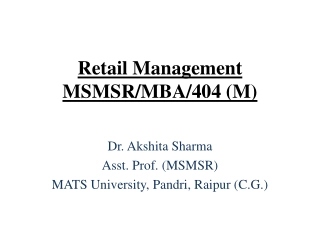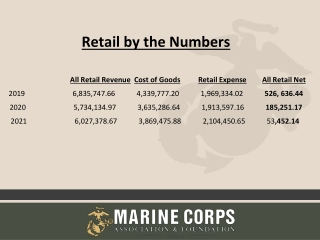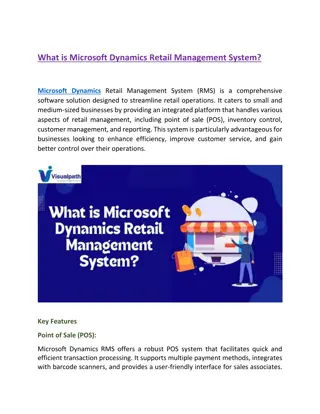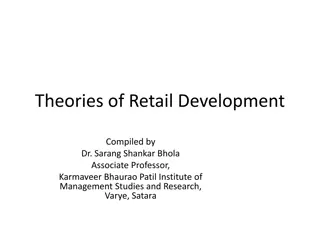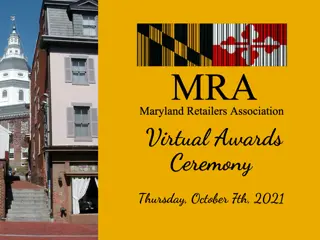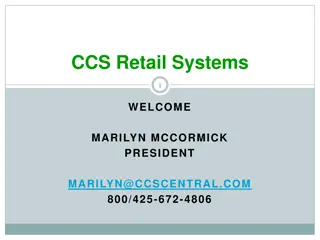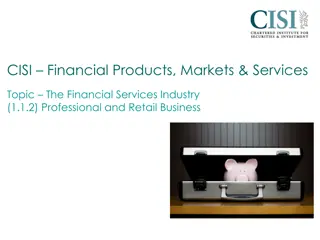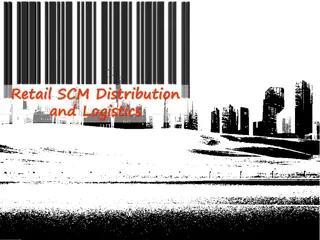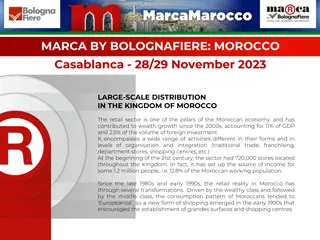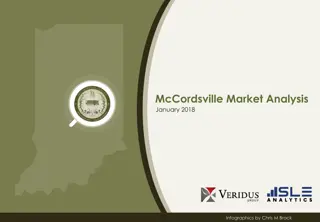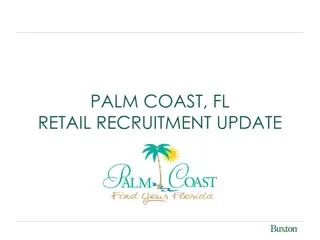Contrasting Retail Marketing and Service Marketing
Retail marketing focuses on tangible goods, emphasizing product-centric strategies like merchandising and inventory management. In contrast, service marketing centers on intangible services, prioritizing customer relationships, service quality, and customization to meet individual needs. Both share common principles but differ in focus and strategies, with retail targeting end consumers through promotions and discounts, while service marketing emphasizes customer satisfaction and word-of-mouth reputation.
Download Presentation

Please find below an Image/Link to download the presentation.
The content on the website is provided AS IS for your information and personal use only. It may not be sold, licensed, or shared on other websites without obtaining consent from the author. Download presentation by click this link. If you encounter any issues during the download, it is possible that the publisher has removed the file from their server.
E N D
Presentation Transcript
RETAIL MARKETING AND SERVICE MARKETING Retail marketing and service marketing are two distinct but interconnected concepts within marketing. While they share some common principles, there are key differences in their focus and strategies. the broader field of
Retail Marketing: Product-Centric: Retail marketing primarily revolves around the sale of tangible goods or products. It involves promoting and selling physical items to end consumers. Merchandising: Retailers often focus on merchandising, which involves the selection, pricing, promotion, and display of products to maximize sales. This includes activities such as store layout, window displays, and in-store promotions. Inventory Management: Retail marketing involves careful management of inventory levels to ensure that products are available to meet customer demand. This includes considerations of stock levels, reorder points, and supply chain logistics. Location Strategy: The location of retail outlets is a critical aspect of retail marketing. Retailers strategically choose locations based on factors like foot traffic, target demographics, and competition. Promotions and Discounts: Retailers frequently use promotions, discounts, and sales events to attract customers and drive sales. Advertising and marketing campaigns often highlight these promotions to create a sense of urgency and encourage immediate purchases.
Service Marketing Intangibility: Unlike retail, services are intangible and cannot be touched or held. Service marketing focuses on promoting and selling activities, experiences, or expertise rather than physical products. Customer Relationship: Service marketing places a strong emphasis on building and maintaining relationships with customers. Since services often involve personal interactions, customer satisfaction and loyalty are crucial for success. Quality of Service: The quality of service is a critical factor in service marketing. Positive customer experiences and satisfaction contribute significantly to the success of service-based businesses. People and Processes: Service marketing often involves marketing not just the service itself but also the people delivering the service and the processes used. This includes employee training, service delivery mechanisms, and customer service. Customization: Services are often more customizable than products. Service marketing may involve tailoring offerings to meet the unique needs and preferences of individual customers. Word of Mouth: Reputation and word-of-mouth play a significant role in service marketing. Positive reviews and recommendations from satisfied customers can be powerful marketing tools.


